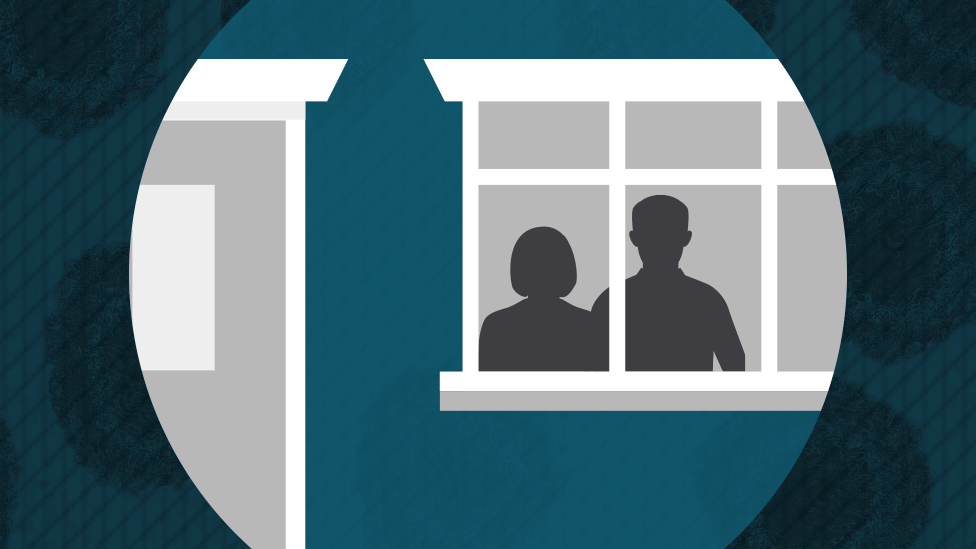Covid-19: Shielding coming to an end for millions
- Published
- comments
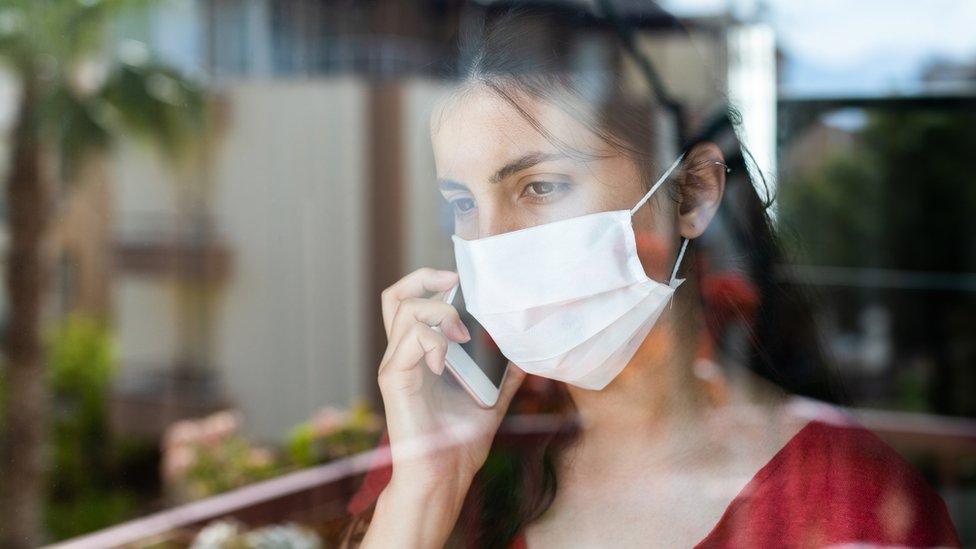
Wednesday marks the last day that about four million of the most clinically vulnerable people in England and Wales are advised to shield at home.
Letters have been sent out to the group in the last few weeks.
They are still being advised to keep social contacts at low levels, work from home where possible and stay at a distance from other people.
The change comes amid falling Covid cases and hospital admissions.
According to NHS Digital, there are 3.8 million shielded patients in England and 130,000 in Wales.
Scotland and Northern Ireland are expected to lift their restrictions later in April.
People identified as being clinically extremely vulnerable were advised to take extra care to avoid contracting Covid-19 because they are considered more at risk of needing hospital treatment.
They include people who have had stem cell transplants or are having chemotherapy treatment for cancer, and adults with chronic kidney disease.
In February, another 1.7 million people in England were added to the list, based on the clinical judgement of their GP or hospital doctor.
Anyone shielding has been entitled to priority access to a Covid vaccination before the general population.
'Anxious time'
People affected by shielding included Rob Smith, from Hull, who has muscular dystrophy.
Shielding for more than a year has been a "nightmare", he told BBC Breakfast.
"Where I was able to go out, I didn't feel I wanted to. I didn't feel confident to face people again," he said.
"I've always been sociable.... It's had a massive impact."
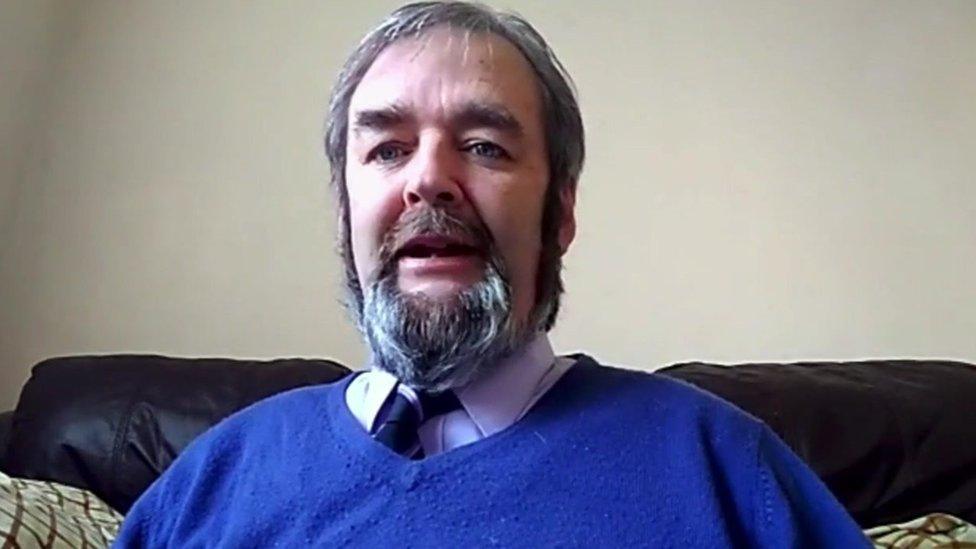
Rob Smith says the last year has been a "nightmare"
Mr Smith now says he feels anxious about the future and believes for many people who have been shielding, it will "take time to get used to being out there again".
He is also wary of the risk of mixing with others again.
"I have had the first jab - knowing I'm going to be out there mixing potentially with people who could be carrying the virus - it is still an anxious time," he said.
For Katherine Taylor in Essex, who has a rare neurological disorder and hyper-mobility, the last year has been a "real mixture of emotions".
Her employer, a local college, has "been really brilliant and supportive" and allowed her to do her job as an event planner from home. She will continue to work from home in the next few months.
But she said: "The isolation of not actually being able to see and do the things you'd normally do has been really, really difficult - particularly not being able to see my parents."
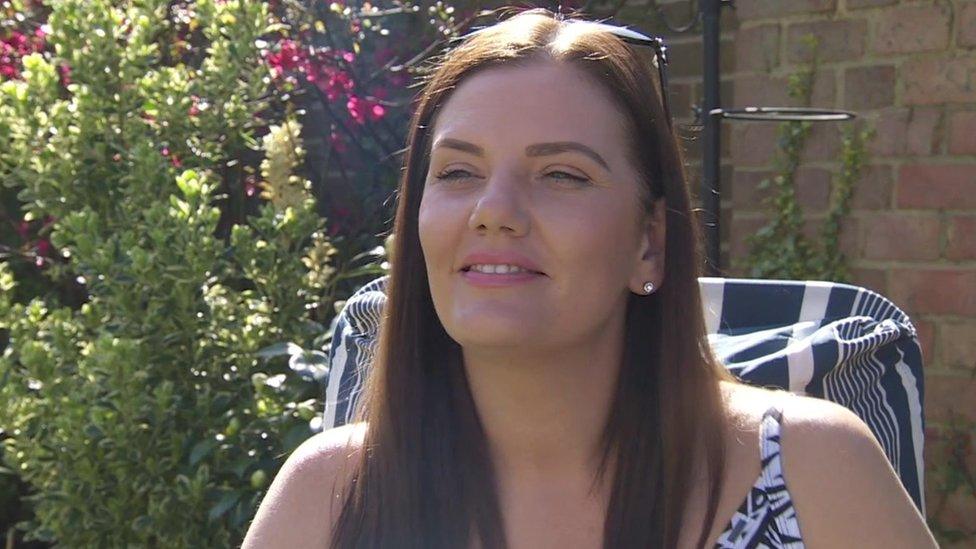
Katherine Taylor says it will be a relief to get back to some kind of normal
It has also been hard for Mrs Taylor not to attend in-person physiotherapy sessions and to have hospital appointments put off.
She said it would be a "relief to get back to some sort of normal again" - go shopping with her daughter and eventually take a holiday break with her family in the camper van her husband has been fixing-up over lockdown.
"I'm feeling really good now about the future," she said, adding she was excited to "see friends, spend more time with my family, so many things".
"Just such simple things we took for granted."

LOOK-UP TOOL: How many cases in your area?
LOCKDOWN RULES: What are they and when will they end?
SOCIAL DISTANCING: How can I meet my friend safely?
FACE MASKS: When do I need to wear one?
VACCINE: When will I get the jab?

Tuesday's daily coronavirus figures showed deaths and hospital admissions continuing to fall.
There were 56 deaths within 28 days of a positive coronavirus test and 289 patients admitted to hospital, with the seven-day averages for each down by 35% and 22.1% respectively.
A further 4,040 cases were recorded, with the seven-day average down by 7.9%.
The figures also showed 30,680,948 people have now received a first dose of the vaccine, while 3,838,010 have had two doses.
On Monday, restrictions in England were eased, allowing groups to meet outdoors.
Outdoor sport facilities, including swimming pools, tennis courts and golf courses, have reopened, while weddings are also on again.
Speaking on Monday at a Downing Street briefing, Prime Minister Boris Johnson it was not clear "exactly how strong" the UK's defences would be against another wave of Covid, despite the "impressive" vaccine rollout.
But he also said he could not "see anything in the data right now that would cause us to deviate from the road map" of easing further restrictions.
From 12 April, shops, hairdressers, gyms and outdoor hospitality will reopen in England, if strict conditions are met.

SLEEP AND COVID: How do stressful situations affect our dreams?
GRENFELL ATHLETIC: Healing the community after tragedy

- Published17 March 2021
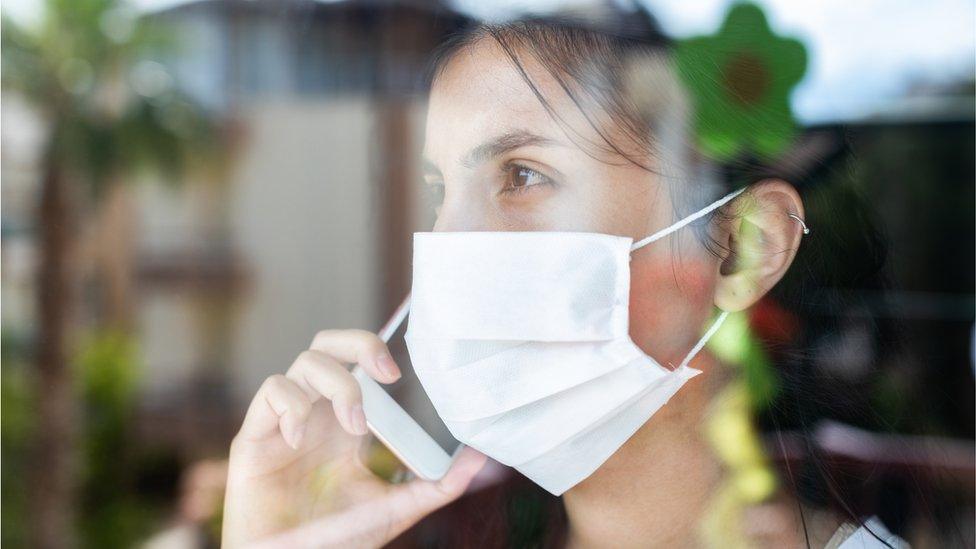
- Published13 July 2021
